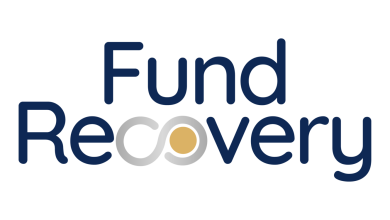What the heck is financial literacy?

With the online age and the rise of technology, it has become increasingly difficult for people to manage their finances. So many aspects of finance can be overwhelming and confusing, but this isn’t going to change. Here is a helpful definition of what financial literacy is. You might be surprised to learn you are lacking it, but the first step to achieving it is acknowledging that there is a problem.
There are many ways to improve your financial knowledge and this includes doing online research. Many consider finance as complex as coding and building robots, but it’s more like reading an instruction manual. There are many resources that can give you all of the knowledge you need in order to succeed.
What is financial literacy?
Financial literacy is the ability to understand and use financial tools and information to make sound decisions about one’s financial situation. This can also help people save for their future, manage their money effectively, and protect themselves from financial scams. There are many different types of financial literacy, but all of them share some common goals.
Some examples of goals for this include:
-Knowing how to budget and save for long-term goals
– comprehending complex investment concepts
– recognizing warning signs of financial scams – understanding the principles of a savings account – identifying and avoiding risky investments – understanding the basics of an investment portfolio – making responsible decisions about debt
Benefits of Financial Literacy
Financial literacy is the ability to understand and use financial information to make informed decisions about one’s own finances and the economy as a whole. Financial literacy can help individuals save for their futures, manage their money wisely, and protect themselves from potential financial pitfalls.
There are many benefits to financial literacy, including:
1. Increased financial stability and can help individuals build a strong credit history and avoid debt traps. It can also help them understand how their money is being used and make better choices about spending and investing.
2. Greater control over one’s finances. This gives a individuals the tools they need to manage their money effectively on their own behalf. This can include budgeting and tracking expenses, setting savings goals, and investing for long-term growth.
3. Reduced risk of financial troubles. By understanding what affects their bank balance and investment returns, individuals can reduce the chances of encountering negative financial surprises down the road.
4. Improved decision-making skills. It can help people make smarter choices about investments, borrowing, and spending overall. This can lead to more successful financial outcomes overall – both now and in the future.
How to learn financial literacy
Financial literacy is the ability to understand and manage your money wisely. To be financially literate, you need to be aware of your personal finances, understand basic concepts about investments, and know how to handle debt and budgeting. Here are some ways to learn more about this literacy:
1. Take a course on financial planning or investing. There are plenty of online courses and seminars available that can teach you the basics of both topics.
2. Read books on personal finance. This can help you gain a deeper understanding of concepts and help you better plan for your future.
3. Watch financial television shows or documentaries. These shows can provide you with valuable information about investing, debt management, and other financial topics.
4. Speak to a financial advisor. A financial advisor can help you take the first steps in managing your finances effectively.
Common terms in finance
Financial literacy is the ability to understand and use financial information to make sound decisions about one’s own financial well-being and that of others. Financial literacy can be broken down into a few key areas: understanding money, managing spending, investing, and banking/financing.
Understanding money: Financial literacy includes understanding how money works, how to create and manage budgets, and how to save for long-term goals.
Managing spending: Financial literacy includes understanding how to get the most out of one’s income and avoid overspending. It also includes knowing how to deal with debt, protect against scams, and understand basic credit scoring.
Investing includes knowing the different types of investments available, understanding the risks and rewards associated with each type of investment, and being able to make sound investment decisions.
Banking/financing includes understanding how banks work, understanding different types of loans and mortgages, budgeting for a mortgage or loan, and being able to negotiate a good deal on a home purchase or car lease.
Conclusion
Financial literacy is the ability to understand and manage one’s own finances. It encompasses knowing how to pay bills on time, save money for a rainy day, invest wisely, and understand the risks associated with different types of investments. Financial Literacy Week (FLW) is an annual event that was founded in 2006 by The National Foundation for Credit Counseling (NFCC). FLW raises awareness about the importance of financial literacy and provides resources to help individuals build better financial lives.
Hope you like the above article about financial literacy . Let us know by writing us back and also give us your valuable feed back





